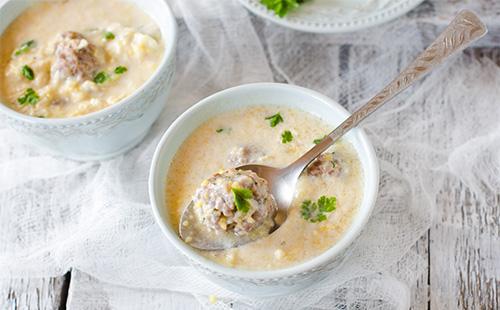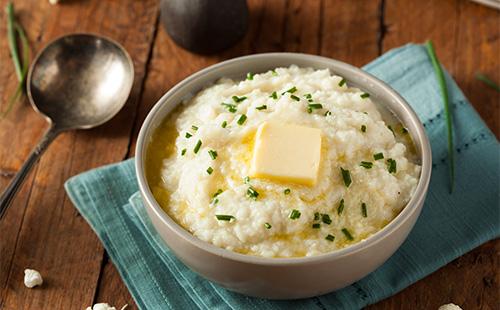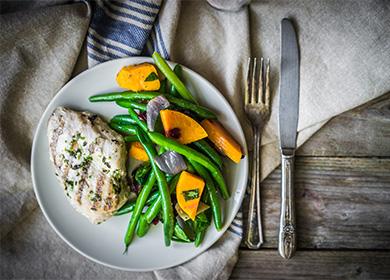The content of the article
Urolithiasis (ICD), or urolithiasis, is a pathology caused by a violation of the metabolism of certain substances in the body. A feature of this disease is the formation of stones of various sizes (from millimeters to several centimeters in diameter) in the upper and lower parts of the urinary system: renal pelvis, ureters, bladder, urethra. In children, this pathology is relatively rare, stones can form with metabolic disorders of a congenital nature.
Causes of kidney stones
What are the signs of kidney stone disease? Stones can be in the organs of the urinary system for a long time. Most often, they make themselves felt by acute pain in the lumbar or inguinal region, dysuria, fever. These symptoms may have other causes, such as appendicitis or diseases of the reproductive system. In each case, only a doctor can make the correct diagnosis.
The formation of stones is often caused by an increase in the acidity of urine, which is associated with an increased consumption of spicy, salty, fried foods, high-protein foods or containing a large amount of calcium compounds. Therefore, in addition to the main course of treatment, it is imperative to follow a diet aimed at preventing the formation of calculi in the urinary system.
Dietary basics
A properly designed diet prevents the formation of calculi, so it is necessary even after they have been removed. If there are chronic diseases of the urinary system, then it is necessary to undergo a course of treatment in parallel. Depending on the prevalence of certain chemical components, the stones may mainly include:
- calcium oxalates;
- urate;
- cystine;
- calcium phosphates or hydroxyapatite.
Depending on the type of stones and the appropriate diet is selected, the doctor indicates what to eat and in what portions. If phosphates prevail, then the menu limits milk and dishes from it, some types of fruits and vegetables. At the same time, with oxalates, the main restrictions apply to fried foods, and smoking cessation is also necessary.
The value of the drinking regime
If you have kidney stones, you should drink as much fluid as possible. It is important that unnecessary substances are “washed out” of the urinary system. It also prevents stone formation and prevents IBD. Most urologists recommend that such drinks be included in the diet for exacerbation of urolithiasis:
- diluted cranberry juice;
- rosehip infusion;
- decoction of dried apples and pears.
Also, increased fluid intake is recommended for concomitant secondary infections: cystitis, pyelonephritis, or prostatitis.
Universal recommendations
If you adhere to a special diet for kidney diseases, you can achieve good results. Typically, the diet is individually compiled, taking into account the characteristics of the patient’s body, his dietary preferences, as well as the chemical composition of stones. But there are universal recommendations for all patients with IBD. Need to eat:
- oranges, lemons;
- melons (melons, watermelons);
- Tomatoes
- wholemeal flour;
- dried slices of apples and pears;
- low-fat fish (preferably marine);
- lean meat (chicken, turkey meat).

Menu example
According to statistics, urolithiasis is more common in men than in women. However, women sometimes suffer more severe acute pain and other symptoms of the disease, they are more likely to have relapses even after removing the stones. In addition, it is not so rare that urolithiasis in women is complicated by a secondary bacterial infection. That is why diet plays an important role in the treatment of pathology.
Specially selected nutrition for pyelonephritis and urolithiasis helps to reduce the formation of stones, which reduces the risk of serious consequences. The diet is aimed at restoring the patient's condition during drug therapy, after surgery, and is also the prevention of relapse.
A special diet for ICD is prescribed and adjusted by the attending physician along with a nutritionist based on analyzes and instrumental studies.
An approximate menu for a week with urolithiasis can be seen in the table.
Table - Menu for urolithiasis for seven days
| Day | Breakfast | Dinner | Dinner |
|---|---|---|---|
| Monday | - Oatmeal; - white cabbage salad; - baked apple | - Cereal broth with lean meat and vegetables; - turkey chops; - jelly from berries | - Cucumbers with herbs and corn oil; - omelet, - cranberry juice or a glass of kefir |
| Tuesday | - Buckwheat; - fried eggs from 2 eggs; - herbal tea | - Soup with chicken dumplings and dried white bread; - cottage cheese with honey | - Fritters on the water with sour cream; - a glass of yogurt or apple compote |
| Wednesday | - Buckwheat; - White bread; - fruit jelly | - Carrot soup based on chicken stock; - braised cabbage; - a glass of warm rhubarb compote | - Semolina; - nonfat yogurt with honey |
| Thursday | - Boiled rice with vegetables; - herbal tea | - Mashed potatoes; - steamed fish; - green tea | - Omelet with vegetables; - a glass of yogurt |
| Friday | - Cabbage rolls; - White bread | - Milk soup with pasta; - a cup of green tea | - 2 boiled eggs; - berry jelly; - fruit compo |
| Saturday | - Chicken breast with steamed vegetables; - a cup of yogurt with bran and honey | - Rice pudding in milk; - beetroot salad; - a glass of herbal tea | - Wheat porridge; - a glass of kefir |
| Sunday | - Omelet; - salad of cucumber, tomato, fennel; - White bread; - dried fruits compote | - Stuffed cabbage with rice and low-fat chicken; - apple compote | - Semolina and plum casserole; - a cup of green tea |
With oxalates
The main goal of this type of diet is to limit the intake of oxalic acid salts in the body. The following products are contraindicated:
- spinach;
- lettuce;
- figs;
- chocolate products;
- nuts.
It is also better to limit the consumption of milk and products from it. However, it is useful to include in the diet:
- quince;
- pears
- fresh and dried plums;
- cauliflower.
With urate
If urate stones are found in the patient, then the following is removed from the menu:
- meat;
- fish
- beans, peas;
- mushrooms.
Useful to eat:
- dairy products;
- cereals;
- citrus;
- mango;
- avocado;
- broccoli, white cabbage.
With phosphates
The formation of phosphate stones in the kidneys is primarily due to the increased content of calcium and magnesium ions. Therefore, nutrition with this type of disease should limit the consumption of milk, products from it, sour-milk dishes. In the list of tables according to Pevzner, this is diet No. 14. It is recommended to include in the menu:
- green vegetables - cucumbers, bell peppers, cabbage, broccoli;
- meat and fish - non-greasy;
- cereals - rice, wheat, oatmeal.
Diet for ICD in pregnant and lactating
Some difficulties may arise when creating a menu for pregnant women suffering from urolithiasis. Bearing a child, especially in recent weeks, often provokes various inflammatory pathologies of the urinary tract. In the later stages, this is due to the pressure of the growing uterus on the surrounding tissues and organs. A pregnant woman with an ICD should adhere to the following principles in nutrition.
- Water. The optimal volume of fluid is up to 2-2.5 liters per day (fruit drinks, decoctions of dried fruits, rose hips, infusions of kidney collection). However, with the appearance of edematous syndrome in the later stages, it is necessary, on the contrary, to limit drinking.
- Protein. Consume a sufficient amount of protein, up to 100-110 g per day. It is recommended to give preference to easily digestible protein dishes: milk, cottage cheese, lean meat and boiled fish.
- Vitamins. Ensure the receipt of the required volumes of vitamins, micro and macro elements. The menu should include fresh vegetables and fruits, if not enough, prescribe special multivitamin complexes for pregnant women.
Depending on the chemical characteristics of calculi in kidneys, foods that contribute to their formation are excluded from the diet. Their list is given above. Regardless of the type of ICD during pregnancy, it is also recommended to exclude:
- fried and baked in the oven with a crust dishes;
- fatty meats (pork, beef, lamb);
- rich mushroom, meat broths;
- refractory fats;
- margarine and dishes containing it.
With lactation, a woman should adhere to similar principles of nutrition. It is also recommended to increase protein intake to 120-130 g per day. The diet should have a sufficient amount of drinks, milk and products from it.

Diet therapy for concomitant pathology
Often, urolithiasis is combined with other somatic diseases. Kidney stones can be combined with gastrointestinal diseases, such as pancreatitis or cholecystitis. In this case, the menu is compiled taking into account the underlying disease, plus products that are contraindicated in a particular type of stones are excluded.
If urolithiasis is combined with nephritis or glomerulonephritis, it is prescribed diet number 7. The main principles of this type of food:
- protein restriction to 70-80 g per day;
- salt intake is not more than 5 g per day;
- decrease in the number of meat dishes;
- the exception of alcohol, chocolate, cocoa, hot spices, marinades.
It is also not recommended to eat legumes, sorrel, spinach.
Depending on the severity of renal failure, table No. 7 can be modified.With a significant violation of the filtration function of the kidneys, the amount of protein in the diet can be limited to 40 g.
Other diets
Diet for gallstone disease
Diet for hypertension
Diet for Psoriasis
High cholesterol diet

